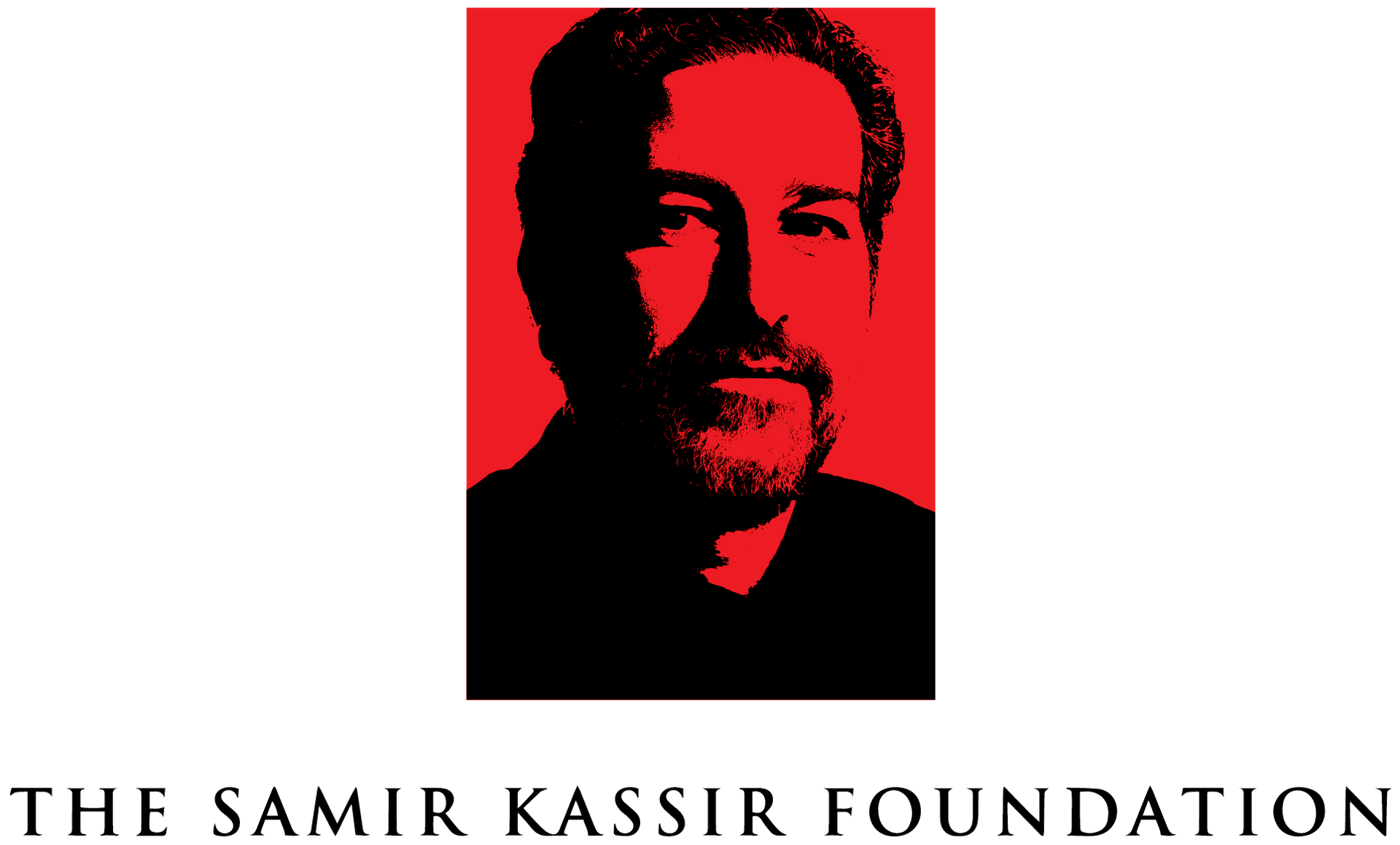TALKS
THE BEIRUT IDEAS
On the occasion of the Beirut Spring Festival 2015, the SKeyes Center for Media and Cultural Freedom, in cooperation with international partners, hosts a series of panel discussions on key challenges facing freedom of expression and democratic change in the region.
Under the title "The Beirut Ideas", the themes of the debates are drawn from the writings of Samir Kassir and the SKeyes Center's experience in training journalists and exploring new trends in the world of media and communication.
Sunday 3 – Saturday 30 May 2015
Multiple Locations in Beirut
1- Defending Press Freedom Today: New tools, new challenges
Sunday 3 May 2015, 6:30 pm
Press Syndicate, Ain El Tineh
Press freedom is not doing well. The past few years have been the deadliest for journalists, especially in the Middle East, where more than 90 percent of crimes go unpunished. Defenders of press freedom today face multiple challenges: How to protect journalists who cannot afford expensive safety training and protective equipment? How to deal with budget constraints and donor fatigue? How to protect freedom of expression in law and in practice?
Speakers:
- Sarah Giaziri (Rory Peck Trust, UK / Libya)
- Jodie Ginsberg (Index on Censorship, UK)
- Cheryl Gould (Committee to Protect Journalists, USA)
- Ayman Mhanna (SKeyes Center, Lebanon)
Moderator: Hanin Ghaddar (NOW Media, Atlantic Council, Lebanon)
2- Healing Memories and Building the Future
Tuesday 5 May 2015, 6:30 pm
Campus de l'innovation et du sport, Université Saint-Joseph de Beyrouth, Rue de Damas
Without coming to terms with its past, a society cannot build its future. Drawing on the experiences of many countries that have established mechanisms to deal with memory, such as Spain, Chile and Northern Ireland, this panel will look at what has not been done in Lebanon and the results of the political choice of amnesty and amnesia. The discussion will also shed light on measures that can be taken to ensure a sustainable truth and reconciliation process in post-conflict Syria.
Speakers:
- Ziyad Baroud (former Minister of Interior and Municipalities, Lebanon)
- Josefina Cuesta Bustillo (University of Salamanca, Spain)
- Luciano Fouillioux (Museum of Memory, National Institute for Human Rights, Chile)
- Jane Morrice (former Deputy Speaker of the Northern Ireland Parliament, UK)
Moderator: Carmen Abou Jaoudé (International Center for Transitional Justice, Lebanon)
3- Freedom and Privacy: The Impossible Equation?
Thursday 7 May 2015, 6:30 pm
Campus de l'innovation et du sport, Université Saint-Joseph de Beyrouth, Rue de Damas
Billions of people around the world live connected lives. Every person today produces and generates tons of data. The world has already entered the "Internet of Things" era, with more and more connected devices in everyone's daily life. The panel will try to address key questions: Who gets the data? Who has the ability to make sense of it? How is the data being commoditized? What are the implications of this new form of connectivity for people's personal and public freedom and for political systems? How do the "good guys" and the "bad guys" use the data?
Speakers:
- Kevin Collier (Daily Dot, USA)
- Reem Al-Masri (7iber.com, Jordan)
- Sascha Meinrath (X-Lab, USA)
- Mohamad Najem (Social Media Exchange, Lebanon)
Moderator: Kelli Arena (Global Center for Journalism and Democracy, USA)
4- Culture in the Midst of War: the Syrian Experiment
Friday 8 May 2015, 6:30 pm
Dawawine, Gemmayzé
Since the outbreak of the conflict in Syria, many Syrians have chosen art as a channel to express their feelings after forty years of oppression and four years of war. The works of Syrian artists are a reflection of history, suffering, and doubt, but they also carry a glimpse of hope and a chance to live, for a moment, in a different, more peaceful environment. The panel will highlight remarkable Syrian artistic experiences and discuss the importance of art and culture in times of war.
Speakers:
- Ali Al-Atassi (Bidayat, Syria)
- Ziad Majed (American University of Paris, Lebanon)
- Raghad Mardini (Art Residence Aley, Syria)
Moderator: Hanan Kassab Hassan (Saint Joseph University, Syria)
5- Culture in the Midst of War: the Syrian Experiment
Friday 8 May 2015, 6:30 pm
Dawawine, Gemmayzé
Since the outbreak of the conflict in Syria, many Syrians have chosen art as a channel to express their feelings after forty years of oppression and four years of war. The works of Syrian artists are a reflection of history, suffering, and doubt, but they also carry a glimpse of hope and a chance to live, for a moment, in a different, more peaceful environment. The panel will highlight remarkable Syrian artistic experiences and discuss the importance of art and culture in times of war.
Speakers:
- Ali Al-Atassi (Bidayat, Syria)
- Ziad Majed (American University of Paris, Lebanon)
- Raghad Mardini (Art Residence Aley, Syria)
Moderator: Hanan Kassab Hassan (Saint Joseph University, Syria)
6- France in the Arab World and the Arab World in France
Wednesday
13 May 2015, 3:00 pm
Salle Montaigne - Institut français du Liban, Rue de Damas
As described in the book "Itinéraires de Paris à Jérusalem" by Samir Kassir and Farouk Mardam-Bey, France and the Arab world have a deep, complex and multifaceted history, marked by partnership, knowledge and mistrust. Samir Kassir, also a French citizen, was a well-heard voice in French media and political circles, and served as a powerful ambassador for the Arab people's dreams of freedom and democracy. The panel will discuss the state of Franco-Arab relations today and in the years to come.
Speakers:
- Karim Emile Bitar (Centre national pour la recherche scientifique, France/Lebanon)
- François Burgat (Institut français du Proche-Orient, France)
- Patrice Paoli (French Ambassador to Lebanon, France)
- Marc Saikali (France 24, France/Lebanon)
Moderator: Alexandre Najjar (Cedrona, Lebanon)
7- Telling the Syrian Story to International Public Opinion
Friday 15 May 2015
Amphithéâtre A, Campus des sciences sociales, Université Saint-Joseph de Beyrouth, Monnot
Part I, 5:00 pm - Film Projection: "The Dublin Pitfall" by Rime El-Jadidi
"The Dublin Pitfall" is a documentary about the consequences of the migration of Syrian refugees to Europe. The film narrates the struggle of individuals who have made the perilous journey to leave their homes to escape war, only to face harsher conditions in their host country. The film was shot during a three-week journey through Bulgaria in April 2014. The director, Moroccan Rime El-Jadidi, worked as a one-woman band on a shoestring budget, relying on the hospitality and help of Bulgarians and Syrians to make this film.
Part II, 6:30 pm - Panel Discussion
Despite more than 200,000 deaths and one of the largest displacement crises in the world, international public opinion has not shown the same level of interest in the Syrian war as in other previous conflicts. At the same time, the Syrian conflict has been widely covered in books, articles, and reports, many of which have won prestigious awards. The international public's focus seems limited to the rise of radical Islamism in Syria and the plight of kidnapped Western journalists. The panel will discuss why the Syrian story is not resonating enough, and what other channels are available to shed light on the tragedy.
Speakers:
- Daniel Beaulieu (Syria Deeply, Canada)
- Leila Nachawati Rego (Syria Untold, Syria)
- Christoph Reuter (Der Spiegel, Germany)
- James Sadri (The Syria Campaign, UK)
Moderator: Ruth Sherlock (The Telegraph, UK)
8- Democracy and the Military Challenge: "Aaskar Aala Meen"
Thursday 21 May 2015, 4:30 pm
Carnegie Middle East Center, Downtown Beirut
In his 2004 book "Aaskar Aala Meen", Samir Kassir explains and denounces the control of intelligence and security apparatuses over political, public, and social life in the Arab world. After the 2010-2011 Arab uprisings against dictatorships and the subsequent rise and fall of Islamist forces, the military is once again playing a fundamental role, with Egypt being the clearest example. The panel will discuss the prospects for democratization in the Middle East, and the relationship between the political class and the military in emerging democracies.
Speakers:
- Rania Barrak (Military Academy, Tunisia)
- Hala Mustafa (Al-Ahram Center for Political Studies, Egypt)
- Jean Oghassabian (Member of Parliament, Lebanon)
- Yazid Sayigh (Carnegie Middle East Center, Palestine)
Moderator: Nabil Bou Monsef (An-Nahar, Lebanon)
9- Syria's Democracy and Lebanon's Independence
Friday 22 May 2015, 6:30 pm
Campus de l'innovation et du sport, Université Saint-Joseph de Beyrouth, Rue de Damas
In 2004, Samir Kassir published a book entitled "Syria's Democracy and Lebanon's Independence: In Search of the Damascus Spring". In this book, he argued that Lebanon will never achieve independence until Syria is governed by a truly democratic regime. Every day that has passed since the publication of this book has proven the accuracy of Samir Kassir's analysis. The debate will shed light on the complex relationship between Lebanon and Syria, at all levels, at all times, and under all circumstances.
Speakers:
- Hala Codmani (Writer, Syria)
- Antoine Haddad (Democratic Renewal Movement, Lebanon)
- Farid Khazen (Member of Parliament, Lebanon)
- Elias Khoury (Samir Kassir Foundation, Lebanon)
Moderator: Imad Marmal (As-Safir, Lebanon)
10- Democracy and the Religious Challenge
Monday 25 May 2015
Campus de l'innovation et du sport, Université Saint-Joseph de Beyrouth, Rue de Damas
Part I, 5:00 pm - Film Projection: "Lights on Darkness" by Diana Moukalled
In the three-part series "Lights on Darkness," Diana Moukalled sheds light on radical Islam by visiting three countries: Iraq, Jordan and Egypt. In the first episode (to be shown during the session), set in Iraq, she shows how al-Qaeda uses women and children to carry out suicide bombings. The series is produced by Firehorse.
Part II, 6:30 pm - Panel Discussion
In the wake of the Arab revolutions, Islamist forces have played a fundamental role, attracting millions of new voters and supporters. In response, religious minorities have demanded international protection and special status. The process of equal citizenship is still in its infancy and faces deadly challenges on a daily basis. The panel will discuss whether democracy can accommodate religiously based forces without risking its own extinction.
Speakers:
- Abbas Halabi (Islamic-Christian Dialogue Committee, Lebanon)
- Nabila Hamza (Equality and Parity, Tunisia)
- Sven Speer (Forum for Open Religious Policy, Germany)
Moderator: Carine Torbey (BBC, Lebanon)
11- KEYNOTE SPEECH
Being Arab: The Arab Malaise Ten Years Later
Wednesday 27 May 2015, 6:30 pm
Campus de l'innovation et du sport, Université Saint-Joseph de Beyrouth, Rue de Damas
In his book "Being Arab", Samir Kassir calls on the people of the Middle East to reject both Western double standards and Islamism in order to take the future into their own hands. Samir Kassir argues that the crisis of Arab identity lies in the failure to come to terms with modernity, turning instead to false solutions such as pan-Arabism and Islamism. Passionately written and brilliantly argued, this rallying cry for change has now been heard by millions. Marwan Muasher will discuss what has changed since the book's publication and assess the current state of Arab malaise.
Speaker: Marwan Muasher (Carnegie Endowment for International Peace, Jordan)
introduced by Andrew Mikhael (Queen's University Belfast, Lebanon/Ireland)
Moderator: Gisèle Khoury (Samir Kassir Foundation, Lebanon)
12- Film projection: "À la rencontre des Églises Premières" by Jacques Debs
Thursday 28 May 2015, 6:30 pm
Campus de l'innovation et du sport, Université Saint-Joseph de Beyrouth, Rue de Damas
This film takes us to the discovery of the churches that were evangelized by the apostles themselves. Born in the East in a hostile environment, the survival of these churches today is a miracle. Each is on the edge of a particular culture. Jacques Debs shared the philosophy of life of these churches, made of mysticism and charity. It is a film with a stunning aesthetic, enhanced by the music of Zad Moultaka.
Speakers:
- Jacques Debs (Filmmaker, Lebanon)
- Samir Frangieh (Former Member of Parliament, Lebanon)
- Saoud Mawla (Writer, Lebanon)
Moderator: Michel Hajji Georgiou (L'Orient-Le Jour, Lebanon)
13- Cultural Diplomacy: When Universal Values Meet the Micro-Local
Saturday 30 May 2015, 6:30 pm
Salle Montaigne - Institut français du Liban, Rue de Damas
International institutions working in the field of relief and political development usually arrive in a country undergoing conflict and difficult political transitions, and then leave. Conversely, international cultural centers and institutes often have a much longer presence on the ground. Their interaction with local artists, teachers, and thinkers allows them to develop a different understanding of realities and a more informed perspective on the future of societies. The discussion will focus on the role of these institutions in today's changing times, amidst a growing debate between advocates of universal values and proponents of cultural relativism.
Speakers:
- Antonin Baudry (Institut français, France)
- Eduardo Lopez Busquets (Casa Arabe, Spain)
- Graham Sheffield (British Council, United Kingdom)
Moderator: Nora Joumblatt (Beiteddine Festival, Lebanon)
The Beirut Spring Festival is a free of charge annual arts and culture programming that celebrates freedom and renewal in Beirut, in memory of Samir Kassir.

All Rights Reserved, Beirut Spring Festival.



